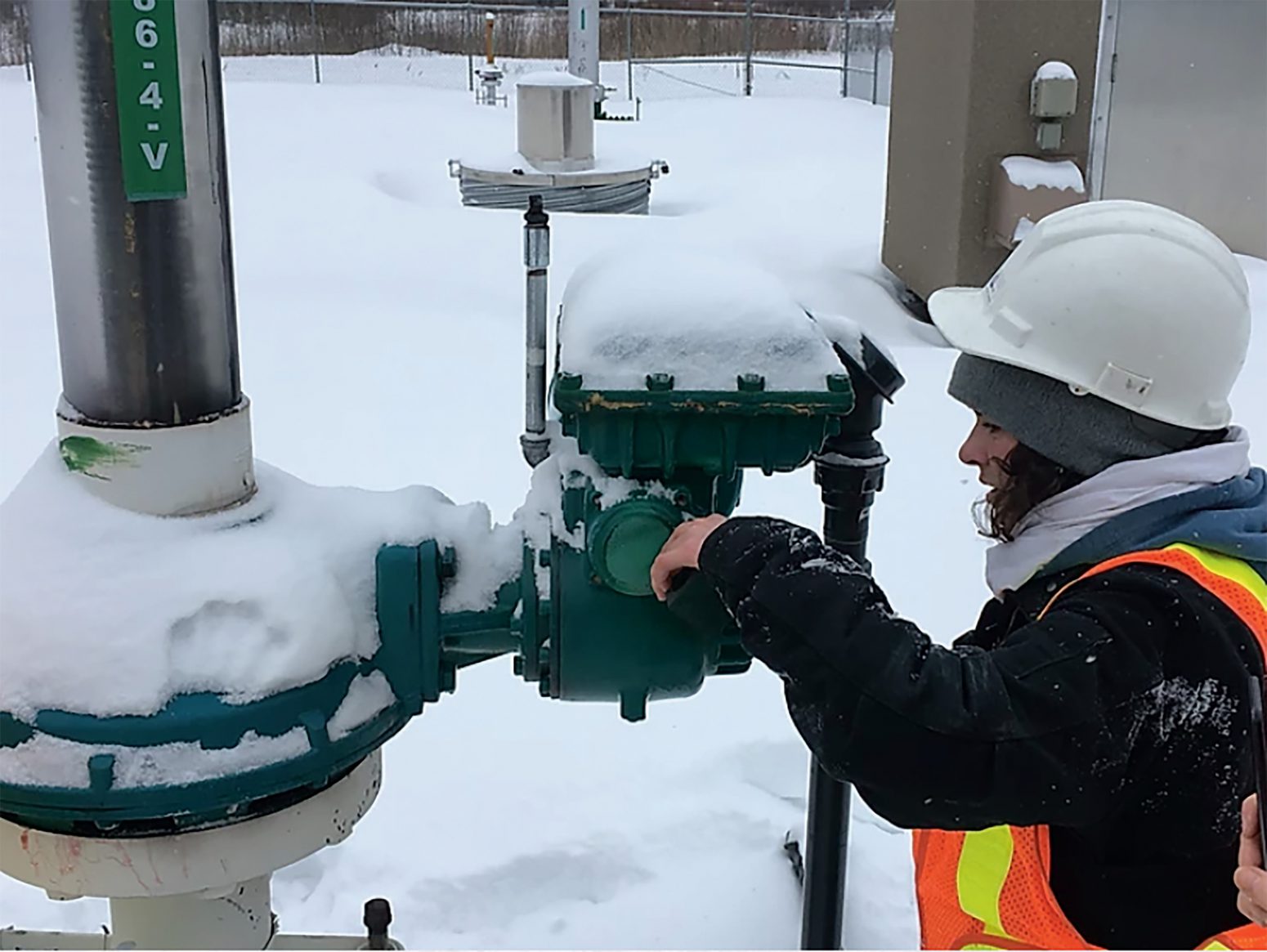On Feb. 4, 2019, four people wearing reflective vests and hard hats hiked through calf-deep snow to the top of a small hill in northern Minnesota. They were carrying a pair of bolt cutters and a Home Depot bucket full of sacred objects. When they reached their destination — a fenced-in emergency shut-off site for Lines 3 and 4, two pipelines that carry diluted bitumen from the Alberta tar sands to Wisconsin — they cut the lock and entered the enclosure. They phoned Enbridge Inc., the Canadian energy company that owns the pipelines, to say what they planned to do. Then they set about trying to shut off the flow of oil.
The Four Necessity Valve Turners, as they call themselves — Brenna Cussen Anglada, Michele Naar-Obed, Daniel Yildirim and Allyson Polman — are Catholic Workers, anarchist Catholics who live communally, provide food and shelter to the poor and advocate for social justice. The four were inspired by other activists in Canada and the United States who have successfully shut off pipelines to draw attention to the climate emergency. They were also acting as allies of several Anishinaabe nations in northern Minnesota who have opposed Enbridge’s plan to reroute Line 3 through treaty territory, wetlands where they hunt, fish and harvest wild rice.
You may unsubscribe from any of our newsletters at any time.
While her teammates struggled to turn the valves, Polman read a statement on camera. “We are ordinary people without all the answers, and yet we each feel personally called to step into responsibility by standing in the way of this deadly fossil fuel industry, which benefits the few at the expense of all life.”
More on Broadview: Clayton Thomas-Müller on the root cause of Indigenous trauma
Her teammates took out the sacred objects — rosaries, crucifixes, prayer flags and tobacco ties that had been sent with prayers from supporters all over the country — and began hanging them on the fence and placing them on the pipes.
“We came out here with these sacred objects as a way of invoking the ancestors, the saints, the angels, the cloud of witnesses, all those that have gone before us,” Naar-Obed said. As she was speaking, the valves behind her began to turn on their own. Enbridge was shutting off the oil remotely.
About 15 minutes later, two police officers arrived to arrest the activists. They were released 48 hours later, and their trial is scheduled for early June. They each face one felony charge of aiding and abetting attempted damage to pipeline property, and one misdemeanour charge for property damage. The felony charge carries a maximum sentence of five years in prison or a $10,000 fine, and the misdemeanour a maximum of 90 days in prison or a $1,000 fine.
Naar-Obed says she finds common ground with her Anishinaabe friends who surround their actions with song, ritual and prayer. She believes a powerful energy is unleashed when citizen groups, scientists and people of faith work together to confront the powers that threaten life on the planet.
Twenty-five years ago, Naar-Obed spent 30 months in a federal prison after she and other anti-war activists infiltrated a shipyard in Virginia and used hammers to symbolically pound on the launch tubes of an attack submarine. At the time, it seemed like her actions had no effect. “I felt like a complete failure,” she recalls. Years later, she heard the grandchild of a Hiroshima bombing survivor point out that nuclear weapons haven’t been used since. In that moment, she saw how her tiny action was part of a much bigger force at work in the world.
This story first appeared in Broadview‘s May 2020 issue with the title “The Four Necessity Valve Turners.”
Broadview is an award-winning progressive Christian magazine, featuring stories about spirituality, justice and ethical living. For more of our content, subscribe to the magazine today.














